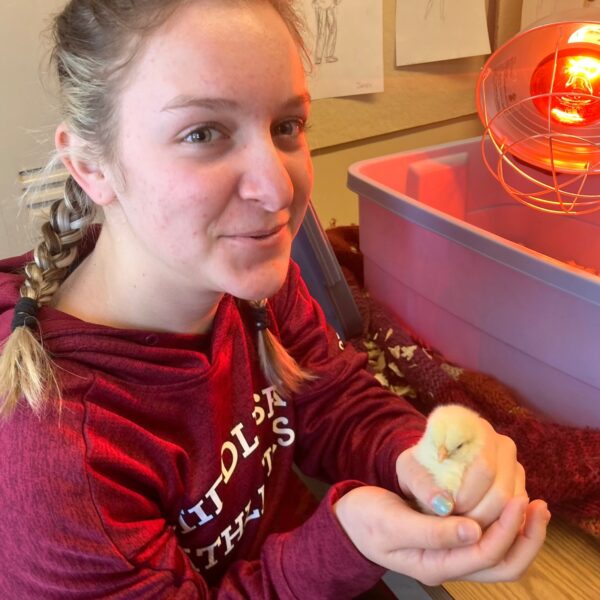 Many academic courses—history, literature, civics, and science—are taught in 3-4 week blocks as seminars that meet for 100 minutes per day, four days per week. Other academic courses—foreign languages, math, and English—meet 3 to 4 days per week for 50 min. Arts courses meet 50-100 minutes, 2-3 times per week.
Many academic courses—history, literature, civics, and science—are taught in 3-4 week blocks as seminars that meet for 100 minutes per day, four days per week. Other academic courses—foreign languages, math, and English—meet 3 to 4 days per week for 50 min. Arts courses meet 50-100 minutes, 2-3 times per week.
English and Literature: English classes meet 3-4 times per week to focus on reading, writing, and interpretation. Literature seminars include:
- Dante’s Inferno
- Homer’s Odyssey
- History of Drama
- World Literature & Translation
- Romantic Poetry
- Transcendentalists
- Russian Literature
- Philosophy
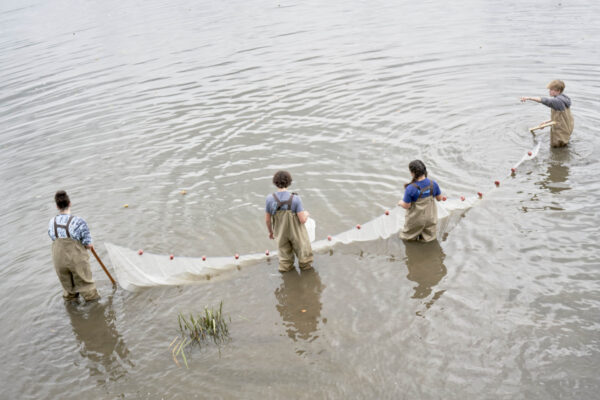 Math: In addition to a standard course of study that progresses from Geometry & Trigonometry to Algebra II, Precalculus, and Calculus, we require seminars in Statistics & Probability and Projective (non-Euclidean) Geometry.
Math: In addition to a standard course of study that progresses from Geometry & Trigonometry to Algebra II, Precalculus, and Calculus, we require seminars in Statistics & Probability and Projective (non-Euclidean) Geometry.
History & Civics: History seminars cover U.S. history and world history from the ancient world to the modern world. In addition, seminars such as History Through Art and History Through Architecture present the development of human consciousness as evidenced by the cultural artifacts of the diverse civilizations that constitute world history. Civics courses provide students with a practical knowledge and understanding of the function of U.S. government. History and civics courses include:
- History Through Art
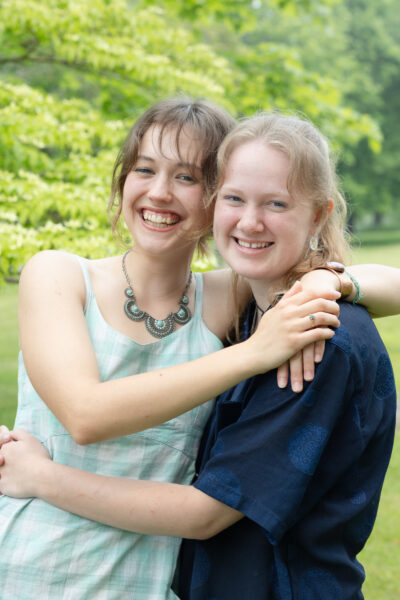
- History Through Language
- History Through Music
- History Through Architecture
- History of Technology
- Latin American History
- Modern U.S. History 1 & 2
- Ancient History
- Early Modern History
- Medieval History
- U.S. Constitution
- Critical Thinking in U.S. Democracy
- Economics
- 20th Century Revolutions & Cold War
- Scientific Revolutions & The Enlightenment
Foreign Languages: Students choose between German and Spanish. Foreign language classes emphasize conversational facility and reading. Each class takes a 3-week visit either to Munich, Germany; or to a Spanish-speaking country (past trips include Costa Rica, Colombia, Peru, and Cuba) in 10th or 11th grade; many, if not most, students then exchange with Waldorf schools in those countries. We host approximately 10 students from Germany for visits or exchanges of 3 to 12 weeks each year. Korean is offered as an elective course, and individual exchanges with schools in France have been arranged per student initiative. Graduates have successfully pursued admission to international universities.
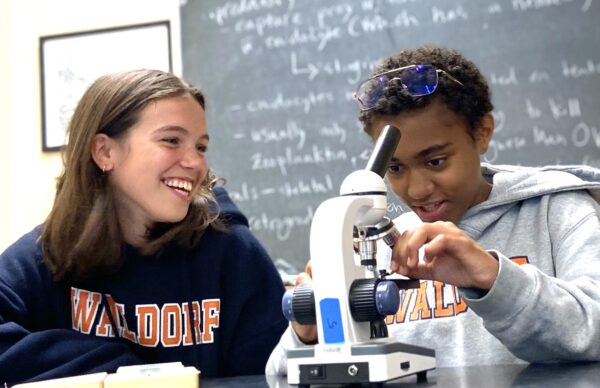 Science: In addition to sequential seminars each year of high school in biology, chemistry, and physics, we offer seminars in earth science, botany, geology, astronomy, and environmental science. Transcripts record those seminars that have a laboratory component. Science seminars include:
Science: In addition to sequential seminars each year of high school in biology, chemistry, and physics, we offer seminars in earth science, botany, geology, astronomy, and environmental science. Transcripts record those seminars that have a laboratory component. Science seminars include:
- Physics: Kinematics
- Organic Chemistry
- Inorganic or Physical Chemistry
- Zoology and Evolution
- Physics: Electricity & Magnetism
- Biology: Human Development & Cell Biology
- Genetics & Evolution
- Anatomy & Physiology
- Physics: Optics
- Physics: Thermodynamics
- Chemistry: Biochemistry
- Chemistry: Atomic
- Geography
- Botany
 Arts: All students take required courses in visual, practical, and performing arts each year. Student portfolios represent this work to colleges and universities.
Arts: All students take required courses in visual, practical, and performing arts each year. Student portfolios represent this work to colleges and universities.
Graduation Requirements: Except in extraordinary circumstances, noted on a student’s transcript, all students take all courses at our high school. Students generally earn 7.50 credits per year, each credit reflecting 120 class hours. Six of these credits are for academic classes. The rest are for arts and physical education classes.
Grading and Ranking Procedures: We grade from A+ (98 % or 4.33) to D- (60% or 0.67). Grades of F receive no credit but are marked on the transcript. We do not weight our students’ grades. We do not rank our students.
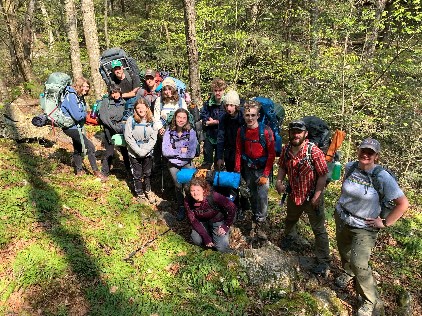 Courses: All academic, arts, and physical education courses are required for all four years of high school, with the exception of occasional choice in the arts. All courses are considered Honors courses. We do not offer AP courses.
Courses: All academic, arts, and physical education courses are required for all four years of high school, with the exception of occasional choice in the arts. All courses are considered Honors courses. We do not offer AP courses.
Test Score Information: 100% of our seniors and juniors will take the SAT I this year. Mean scores for the SAT I for past tests are:
Critical Reading 650
Math 600
Writing 620